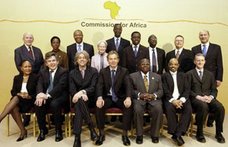Breakdown would undermine the credibility of the WTO – leaving the rules-based trading system increasingly marginalised and global economic growth would inevitably suffer. If the talks are to succeed, developed countries have to eliminate policies that undermine growth in developing countries. Such policies are both anti-poor and anti-business.
Key priorities are:
- 1. An end to agricultural subsidies;
- 2. The provision of duty-free and quota-free access for all products exported from Least Developed Countries, along with relaxation of Rules of Origin requirements for Least Developed Countries;
- 3. Support, through additional donor funding and technical support (“Aid for Trade”), to build Africa’s capacity to trade including support for trade facilitation and customs reform;
- 4. The reduction of tariff and non-tariff barriers to trade between African countries – as part of the much needed effort by African governments to stimulate intra-African trade. This must include to improved regional infrastructure and enhanced customs administration.
Business Action for Improving Customs Administration in Africa (BAFICAA)Led by Unilever, BAT, SITPRO and Diageo, is a flagship trade facilitation programme of Business Action for Africa. On the basis of a business-focused study (conducted by consultant Andrew McTiernan), recommendations are now being tested in East Africa (by PricewaterhouseCoopers), West Africa and shortly in Southern Africa. For more information, click here.

